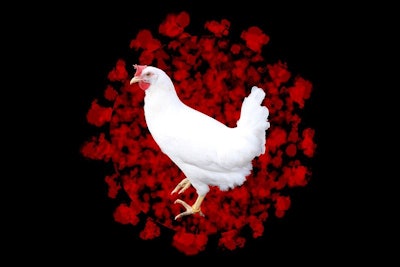
Chickens, eggs, cows and even lottery tickets for luxury apartments are being used to encourage those reluctant to be vaccinated against COVID-19 to get a jab.
In some parts of the world, vaccination programs have got off to a poor start or slowed, and government authorities and private companies are offering incentives – a carrot rather than stick approach, if you will.
The Economist, a newspaper, reports that, in parts of Beijing, Sinovac jabs come with two cartons of eggs while, elsewhere in China, chicken wings, flour or free entry to parks are being offered.
Television network ITV has reported on a Beijing poster which states: “Good news. Starting from today, residents 60-years-old and above who have gotten their first shot are eligible for five jin (2.5 kg) of eggs. First come, first served”.
While some have scrambled to be vaccinated, others have been reluctant, some citing mistrust, others religion, for example.
According to Monica Gandhi, a professor at the University of California, San Francisco, School of Medicine, incentivization for a desired public health behavior is absolutely appropriate and has been shown to be effective. Speaking to science magazine Scientific American she said: “Beer, doughnuts, US$1 million lottery tickets – it’s just human behavior”.
But some members of the public are not looking for college grants or luxury apartments, humble farm animals are enough.
The best gift ever
Reuters notes that, in the Cipanas district of Indonesia, authorities have found that persuading the elderly that vaccines are safe and halal has proved especially difficult, and they have turned to livestock incentives, offering live chickens for each senior receiving a shot. The region’s police chief noted that rewarding with chickens has helped the elderly to overcome their fears.
Data from the country’s Health Ministry has revealed that Indonesia’s vaccination campaign is significantly behind target so anything that can be done to boost vaccination rates should be welcomed.
In the north of Thailand’s Chiang Mae, where most residents are cattle farmers, authorities launched a cow raffle this month which has also proved popular.
The campaign has resulted in more than 50% of the district’s 1,400 residents, mainly elderly and high-risk groups, to register for their vaccines.
On winning a young female cow after being vaccinated, 65 year old Inkham Tongkham said: “This is the best gift ever”.
So incentives would appear to work, but I am not convinced by all of them.
Newspaper The Guardian notes that, in The Netherlands, despite high levels of willingness to be vaccinated, new season Dutch herring is being offered for those receiving their vaccines.
I never thought that I had vaccination reluctance but, not being a fish eater and having to carrying home herring, if I were in The Netherlands, I think that I might take my chances.


















